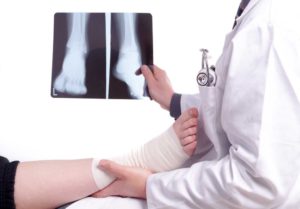May is National Stroke Awareness Month and we’d like to shine the spotlight on stroke prevention. A common question that patients ask us is “can a stroke be prevented?”
Stroke, also known as a cerebrovascular accident (CVA), is currently the fifth leading cause of death in the United States. It is a medical emergency. What is surprising is that most strokes are preventable. In fact, according to the Centers for Disease Control and Prevention (CDC), as many as 80 percent of all CVAs can be prevented with the right lifestyle changes.
Risk Factors
The first step in preventing cerebrovascular accidents is to know the risk factors. There are certain things that make a person more likely to have a stroke, such as:
- Genetics. If your parent, brother, or sister had a CVA, you are more likely to have one too.
- Age. The risk increases as you age.
- Diet. Diets that are high in saturated fats and cholesterol increase the risk of stroke as they raise blood cholesterol levels. Cholesterol is a fatty substance in the blood that clogs arteries. The buildup of cholesterol in the arteries blocks blood flow to the brain resulting in a CVA. Consequently, eating a diet low in saturated fat and cholesterol can reduce the risk.
- Smoking. The nicotine and carbon monoxide present in cigarette smoke damage the cardiovascular system — hence, smokers have an increased risk of CVAs.
- Using Hormone Replacement Therapy. Taking certain kinds of refills for Hormone Replacement Therapy increases the risk of stroke. As a matter of fact, the risk is highest for women who take Hormone Replacement Therapy and smoke.
- Physical inactivity. A lack of physical exercise is linked with an increased risk of stroke.
- Obesity. Obesity is related to other risk factors that likewise increase the risk of cerebrovascular accidents, such as elevated cholesterol and high blood pressure. Therefore, people who are obese are more likely to have a cerebrovascular accident.
Signs Of A Stroke
The next step in preventing strokes is to be aware of the signs. Some of these symptoms can occur with other illnesses, as well. If you are experiencing any of the below symptoms, it is important to call 911 or seek medical treatment right away. Acting quickly is the key to recovery from a CVA. Here are some signs to be on the lookout for:
- Speech problems – Slurred or garbled speech.
- Sudden confusion that comes on quickly – Trouble understanding what others are saying.
- Trouble seeing or dimming – Vision problems that arise quickly in one or both eyes.
- Difficulty walking – Difficulty walking, dizziness, or a loss of coordination.
- Severe headache – A bad headache that occurs for no reason.
- Numbness or weakness – Weakness or numbness on one side of the body only.
Why Acting Quickly Is Important
Getting treatment immediately for a stroke can help save lives. Treatments have improved greatly over the last several decades. Researchers now know that the brain can recover after a stroke. However, time is the key. Waiting too long to get help reduces the likelihood of recovery and diminishes the long-term prognosis greatly. Therefore, see a doctor even if you are in doubt about the symptoms.
Schedule an appointment or visit an urgent care near me to talk to a doctor about your risk today. We can help you identify ways to lower the likelihood of a cerebrovascular accident. Always remember to go to the emergency room or call 911 if you believe that you are having a stroke.










